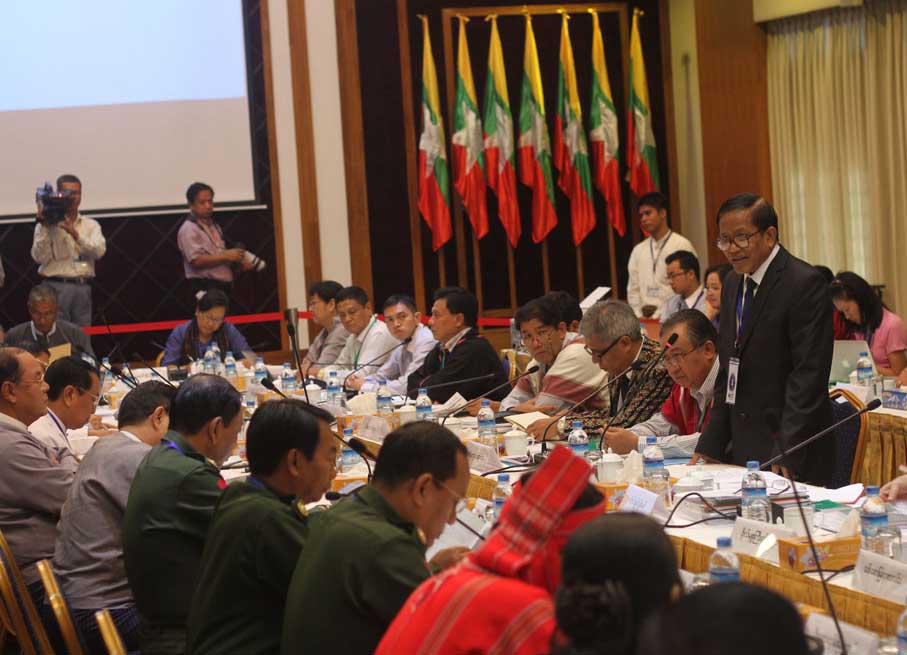A Nationwide Ceasefire Coordination Team (NCCT) representative said on Wednesday that the ethnic bloc is unable to reach agreement with the Burmese government on four of the remaining five points of the proposed single-text nationwide ceasefire draft.
Speaking to DVB after the third day of negotiations between ethnic and government delegations in Rangoon, NCCT Vice-chairman Nai Hongsa said the sticking points concerned military issues, as well as the “road map” for political dialogue and the issue of how many and which armed groups will join the peace process.
The outstanding military matters are thought to involve: troop deployment; a code of conduct for troops; the formation of a ceasefire monitoring joint-committee; and whether or not to prohibit recruitment drives.
“We cannot reach agreement on several issues,” said Nai Hongsa. “Matters relating to the road map, how many groups will be permitted to take part in political dialogue – the government proposed there should be seven – and also military issues.”
Senior NCCT member Salai Lian Hmong Sakhong, head of the Chin National Front, said the government negotiators – a delegation known as the Union Peace-making Work Committee, or UPWC, headed by Minister Aung Min – had backtracked on issues that had been discussed at previous meetings.
“We discussed several points today [Wednesday], but were unable to reach a tangible agreement,” he said. “The UPWC team have backtracked on certain key issues that had already been discussed, such as the road map for political dialogue. We basically had to restart negotiations from scratch.”
[related]
Asked about the potential for progress or accord, the Chin leader said, “It is all taking time.”
Maj. Zau Tawng, head of strategic command for the Kachin Independence Organisation, which is still involved in an ongoing armed conflict with Burmese government forces, said he came to the Rangoon meeting this week with the express aim of agreeing on terms of troop redeployment in the wake of a ceasefire agreement.
“We believe that the deployment of troops is a matter that must be discussed, agreed and included in the NCA [Nationwide Ceasefire Agreement],” he said.
This round of talks, the sixth in a series of negotiations aimed ultimately at securing a lasting ceasefire among all the armed groups of Burma, is scheduled to last from 22 to 26 September, but looks set to be extended due to the lack of accord on crucial issues.
In an interview with DVB on Monday, following the first day of talks, the NCCT’s Nai Hongsa was asked about the degree of progress reached towards concluding a single-text agreement between the two sides.
“Almost none,” he exclaimed.
Meanwhile in Naypyidaw, the lower house of parliament on Wednesday approved a proposal urging the government and ethnic armed groups to work together to agree on a nationwide ceasefire.



